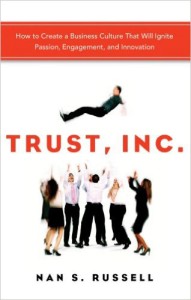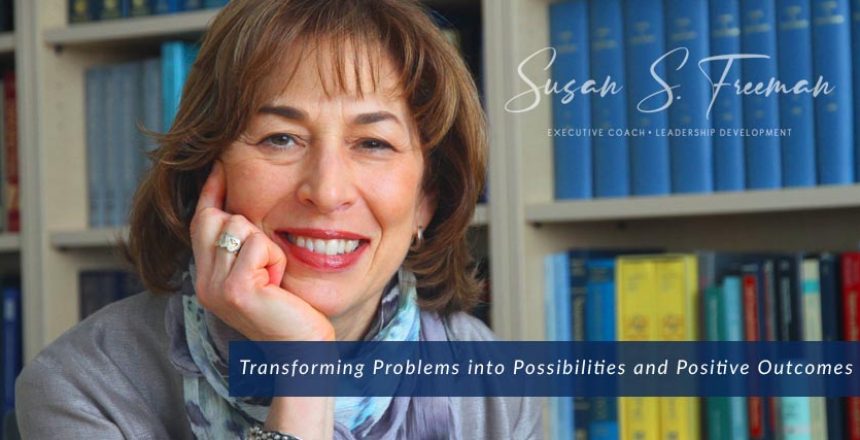What is Culture?
Culture: n. “The total ideas, beliefs, values and knowledge which constitute the shared basis of social action”, “the total range of activities and ideas of a group of people which are transmitted and reinforced by members of the group” – ‘Collins English Dictionary’, (Collins,
Corporate culture is in the news again. As a leadership coach, it’s always front and center in the work I do with leaders and teams. It’s probably the single most important characteristic of any organization. We know a company with a great culture because it is evident in every interaction with customers, vendors, stakeholders, and media. The foundation of all good planning rests upon a solid cultural foundation.
Leaders have the ability to shape culture; they can enhance it or destroy it. Culture impacts the degree to which we like coming to work (it turns out that most of us do not). Gallup regularly polls workers around the world to find out. Its survey last year found that almost 90 percent of workers were either “not engaged” with or “actively disengaged” from their jobs. Think about that: Nine out of 10 workers spend half their waking lives doing things they don’t really want to do in places they don’t particularly want to be. Culture has an awful lot to do with this, and it’s something to which leaders in the know pay attention.
[notification type=”alert-success” close=”false” class=”half-width float-right”]Leaders have the ability to shape culture; they can enhance it or destroy it.[/notification]
Recently, Amazon demonstrates an extreme example of one type of corporate culture that may be mortgaging its future for short term result, while a lack of trust, empathy and collaborative communication eat away at the cultural fabric. Why has the Amazon story hit such a nerve and what can we learn about what it’s doing to lead more effectively?
Marla Tabaka writes in Inc. that according to author Nan S. Russell, “People don’t give their ideas, discretionary efforts, enthusiasm, or best work to people they don’t trust,” she says.
 “Russell maintains that you can pay for someone to come to work and do what they need to do, but you cannot suction ideas, discretionary efforts, and innovative solutions from their minds. In her book, “Trust, Inc.: How to Create a Business Culture That Will Ignite Passion, Engagement, and Innovation,” Russell teaches the value of what she calls “trust currency.” Basically this means creating a culture of reciprocity and mutual support fueled by the exchange of trust. The values-based leadership style modeled by powerful influencers around the world begins with a strong foundation of trust.”
“Russell maintains that you can pay for someone to come to work and do what they need to do, but you cannot suction ideas, discretionary efforts, and innovative solutions from their minds. In her book, “Trust, Inc.: How to Create a Business Culture That Will Ignite Passion, Engagement, and Innovation,” Russell teaches the value of what she calls “trust currency.” Basically this means creating a culture of reciprocity and mutual support fueled by the exchange of trust. The values-based leadership style modeled by powerful influencers around the world begins with a strong foundation of trust.”
Which “Culture Club” do you belong to?
Take this quiz to see if you are modelling the hallmarks of an effective, engaging culture.
[notification type=”alert-info” close=”false” ]Answer true or false:
- I influence more by my actions than my words.
- I am self-aware and recognize the impact of my beliefs and actions on others. I am tuned in to their needs, strengths and perspectives.
- I give trust before I expect trust because I realize that trust evolves incrementally over time.
- I use trust-elevating communication techniques. I own my message, actions, and mistakes and authentically show up in the process.
- I operate from a “best of self” core with characteristics like kindness, compassion, love, tolerance, and integrity.
- I genuinely want the best for others.
- I help others to relate by telling stories at work that are impactful and that positively influence the culture and those in it.
- I get things done the right way with ethics, integrity, and positive intention that builds relationships.
- I collaborate, cooperate, consider, and contribute. I value relationships and build lasting ones not only by what I do, but also by how I do it.
- I demonstrate competence. I do what I promise to do and do it well. I always assist others along the way.
[/notification]
If you checked eight or more on the list you are using behaviors that will help you with the creation of trust currency. Seven or less? You may want to work with a “culture” consultant or coach.
[well type=””]
Amazon’s front page story does not have to become yours.
[/well]
We invite you to post your comments here. If culture is on your mind, we invite you to download our free audio, 5 Secrets Every Leader Should Know.


